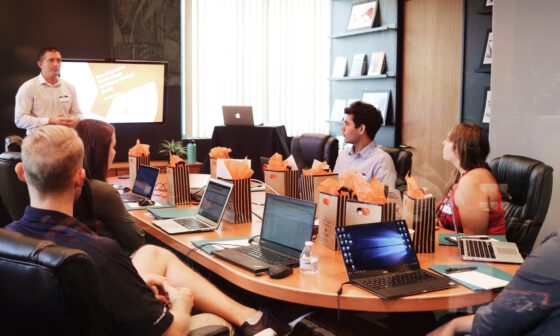When entrepreneurs and VCs meet, conversations should be two way. It shouldn’t just be a VC peppering entrepreneurs with questions. If you’re meeting VCs and not asking them questions, you’re doing it wrong.
We’ve prepared a list of questions we ask founders we support at Magma to ask other VCs when they’re going out to raise money, and decided to make it public. Here’s a list of questions, and why they’re important to ask:
First Call
These are some questions you might want to ask during the first call when you’re just getting to know each other. If you have more time, pick a couple of the follow-up questions you think are most interesting to you.
What’s your investment thesis? Why did you choose it? What’s your policy for follow-ons?
Many funds have their thesis online, but it’s always good to get it direct from a potential investor. Understanding the why can help you understand how an investor thinks and maybe how they can help you.
What’s your fund size and what’s the biggest, smallest, and sweet spot tickets?
You can see if the ticket you’re looking for fits into the fund.
How much have you invested from your current fund? Do you have money left to invest?
You want to know if they have capital to invest, if they’re between funds, and how many companies are in the portfolio. You also want to know how much they might have reserved for follow ons.
Many funds, especially small ones, may not have capital available, and the not so honest ones won’t tell you they don’t have capital until later.
When we were between fund 1 and fund 2 we told founders directly that we could commit to investing, but wouldn’t send a wire until our first capital call, a few months later. Some founders were ok with waiting, others didn’t bother pitching, as they needed to close more quickly. You need to know this ahead of time.
What is your investment process? If all goes well, how quickly do you close?
Some funds close quickly, others have 4-6 month process.
Follow-up Calls
We suggest picking 1-3 of these questions to ask in the first call, but then ask these during follow-up calls as you get to know each other. These types of questions will help you decide who to work with and will give you useful feedback even if they don’t invest.
How many people are on your team and what do they do?
Ideally you’re partnering with a VC for something else other than just their cash. Ask them about their team and how they concretely help the portfolio. Once you have an idea of how many people are on the team, you can get an idea of how the VC is spending its money.
If the VC has a $50M fund and charges the 2% management fee each year, they’ll have $1M to spend on their team. If they have a small team, you can start to see if the VC is building their team, or pocketing big paychecks.
Magma has 8 full time team members, with $10M in two funds. We don’t get to charge a management fee on the other $12M in syndicates we’ve helped our LPs invest into. We are taking a risk with skin in the game, just like we’re asking entrepreneurs to do.
Tell me about a deal that didn’t go well and introduce me to the founder…Tell me about a deal that did go well and introduce me to the founder.
Many founders only ask about the good companies. But you really want to know about the bad experiences and hear about them directly from the entrepreneur’s mouth. You should pick 1-2 other companies that have gotten investment from the fund and reach out to get more data.
What relationships do you have with follow-on investors, where are they based, and how have you helped a current portfolio company raise a follow-on round?
Finding the next round of capital is hard. See if your potential VC partner has helped founders in the past.
Who are your LPs? How do they participate in the fund?
Some funds, especially in Latin America, have very strong networks because of their LPs. These LPs can potentially help startups grow, recruit, and solve tough problems. It’s important to understand if LPs bring restrictions, like government money.
How much have you invested in your own fund?
LPs ask this to GPs, but most entrepreneurs don’t ask this to VCs. Generally the higher percentage invested in their own fund, the better. You can adjust upward for ticket sizes compared to net worth.
What did you do before you were a VC and why did you decide to start a VC?
If your investor has a background in startups, on either side of the table, this can be interesting. Getting to the why of why they started a VC can also be revealing.
What is your fund experience in our vertical. If none, why is this interesting for you?
This question can help you understand if the VC has experience they’re bringing to the table, and how they’re thinking about the opportunity.
What is your biggest advice for us, whether you invest or not? If you invest in us, tell me one thing you can do to help our company right away.
Some funds will not give you a straight answer if they say no, so you might be able to get actionable feedback by asking this question during the investor calls.
Conclusion
Investing is a two-way street. When we invest in a company, we’re choosing to work with you for the next seven to ten years. You’re also choosing us to work with you. Too many founders only look at whether the VC is interested, rather than whether they’re a good fit for the company and the founding team. By asking your VC questions, you’ll be able to find better partners, save time, and make your capital raise more efficient.




1 comment
Getting funds for your start-ups or business is really a difficult job. List of Startup Investors and Firms which Invest in Pakistani Start-ups
Comments are closed.